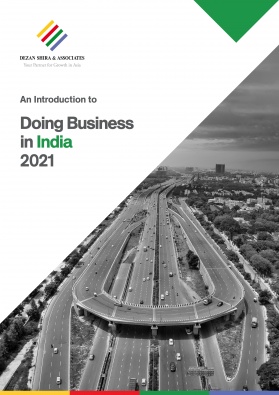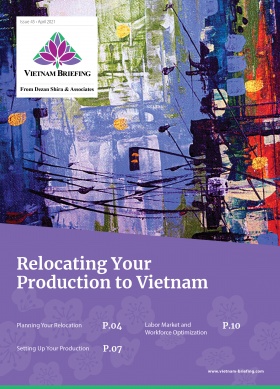Audit Your Suppliers When Sourcing in Vietnam
- Auditing suppliers in Vietnam is imperative for businesses to prevent any supply chain issues, particularly during a pandemic.
- While Vietnam is an ideal location as a China plus one destination, supply chain shifts can bring new challenges such as poor labor and factory conditions as well as product quality issues.
- Factory audits can help mitigate supply chain issues, though investors should conduct regular audits on their suppliers to help limit any potential issues and improve productivity.
Many foreign investors diversifying their supply chains are choosing Vietnam to manufacture and export their products. However, these supply chain shifts can bring new challenges to a business, including labor problems, poor factory conditions, or product quality issues.
This is especially true for brands that manufacture in Vietnam and export their products using unreliable suppliers or factories. It is imperative for businesses to evaluate suppliers to prevent any supply chain issues that may affect business as normal.
With a significant amount of manufacturing and supply chains shifting to Vietnam, it is easy to get caught in an oversight that results in significant losses. This is particularly true for countries like Vietnam, where laws are still catching up with mature supply chains of the US or Europe.
Many auditors do not have a physical presence in Vietnam and hire third parties who sub-contract audits, particularly as Vietnam reels from the fourth outbreak of COVID-19. This can impact the quality of the audit, particularly when local auditors are not familiar with best international practices or when foreign companies are not familiar with common local business practices.
Two manufacturers let down by auditors
Between 2001 and 2010, Nike contracted with Korean factory operator Hansae Co Ltd, which operated several factories in Vietnam. The Korean firm sent 93 percent of its goods to the US from its factories in China, Guatemala, Indonesia, Nicaragua, Saipan – and Vietnam.
The Fair Labor Association (FLA) was granted access to Hansae’s factory making Nike goods in June 2016. The FLA and the Workers Right Consortium were allowed a second access in October 2016, following pressure from US consumers on allegations of poor factory conditions such as labor abuse as well as health and safety violations in Vietnam.
The audits discovered several issues, including unsafe working conditions, forced overtime, verbal abuse as well as health and safety issues. This is despite Nike conducting audits at Hansae’s factory premises.
The reason Nike failed the audits was because they had used third-party auditors for their internal factory audits without thoroughly checking if reports were factual or inaccurate.
In July 2019, a French court charged Samsung with false claims on respecting worker rights at its Asian factories including Vietnam. Samsung has been accused of exposing workers to chemicals and forcing workers to work overtime. This is despite audits by third parties as well as the country’s labor ministry.
Factory audits help mitigate supply chain issues
Foreign investors looking to manufacture in Vietnam should carry out a thorough audit of their suppliers to ensure their network is protected from risks and quality issues.
A factory audit typically takes place after a group of potential suppliers have been screened to make way for the final few candidates. This audit is usually the last step in a sourcing process and is used to verify where goods are actually made as well as factory production capacity and capability.
Factory audits are onsite inspections that can be done by the potential investor or a third party at a factory. Beyond this, however, there is significant variance in what a factory audit covers and how businesses can approach the process.
The most common types of audits are social compliance audits, quality system audits, goods manufacturing audits, as well as an environmental audit. In addition to these, there are several sub-audits, such as the SA8000 and the SMETA audits, which are a form of social compliance audits.
Investors can use several other types of factory audits – such as quality control audits, security audits, and the Customs Trade Partnership Against Terrorism (C-TPAT) audit – to verify their suppliers depending on their requirements. Some security audits such as C-TPAT, the Transported Asset Protection Association (TAPA), and ISO 28000 are even required by some brands for import to countries like the US and UK.
While a factory audit is a good practice before selecting a supplier, businesses should conduct regular audits on their suppliers to help limit the potential for supply chain problems and improve productivity. This will also help ensure compliance with local laws and regulations.
The sourcing process can be a long one, however, due diligence on sourcing partners will ensure investors are able to improve their planning and limit the potential for risk. Businesses should seek to identify independent advisors with an in-country presence to audit suppliers in Vietnam.
Note: This article was first published in August 2019, and has been updated to include the latest developments.
About Us
Vietnam Briefing is produced by Dezan Shira & Associates. The firm assists foreign investors throughout Asia from offices across the world, including in Hanoi, Ho Chi Minh City, and Da Nang. Readers may write to vietnam@dezshira.com for more support on doing business in Vietnam.
We also maintain offices or have alliance partners assisting foreign investors in Indonesia, India, Singapore, The Philippines, Malaysia, Thailand, Italy, Germany, and the United States, in addition to practices in Bangladesh and Russia.
- Previous Article Foreign Employees and Work Permits in Vietnam
- Next Article A Guide to Foreign Investment in Vietnam – Latest Issue of Vietnam Briefing Magazine































